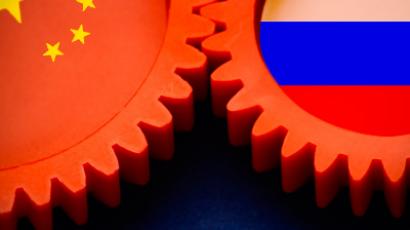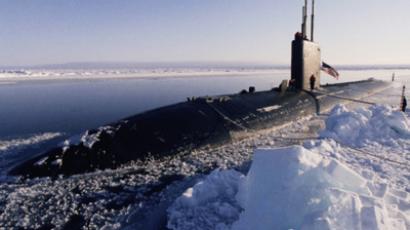Russia gets piece of Atlantic mineral pie
Russia has plans for an ambitious mining project on the Atlantic seabed. The 10,000 square kilometer area, which may have one of world’s richest deposits of gold and copper ore, was awarded to Russia by a UN seabed body.
Russia applied for the rights to do prospecting on a sub-equatorial portion of the underwater Mid-Atlantic Ridge in December last year. In late July, the International Seabed Authority (ISA), a UN body regulating all mineral-related activities in international waters, approved Russia’s application along with three others.Prospecting in the area will be done by the VNIIOkeangeologia, a St Petersburg-based ocean research institute, and the Polar Marine Geosurvey Expedition, a state-owned company specializing in exploration of the seabed. Russia plans to invest between US$20 and $43 million into the survey over five years, reports the Kommersant business daily.Interest in the area is well-grounded. The polymetallic sulphides, reserves of which the exploration aims to locate, are rich in metals, surpassing the ores mined in Russia, an expert of the VNIIOkeangeologia told the newspaper. There is an average one per cent of copper in the ore extracted on the land, while ores which are believed to abound on the seabed are estimated to contain 2.5 to 10 per cent with some even reaching 30 per cent. The same is true for gold content.A source in Russia’s Foreign Ministry told Kommersant that Russia sped up its plans for seabed development and applied to the ISA sooner than it originally intended in response to similar moves by China. It also won a contract from the UN body which gives it prospecting rights for the Indian Ocean seabed.Russia’s contract term is 15 years with the option to extend for five more. The mineral reserves are expected to be found two to four kilometers under the seabed, which makes their extraction challenging.Nevertheless, deepwater mining is a fast-developing business. Russia sees securing such reserves as a strategic goal and has already voiced its desire to invest in exploration of the Arctic region, which is believed to be very rich in oil and natural gas.Moscow is preparing a new application to the ISA for exploration in the Pacific Ocean, a diplomatic source told the newspaper.Russia is also very interested in natural resources, mostly oil and gas, on the Arctic seabed. For quite some time, Russia has been working to prove that the underwater Lomonosov Ridge in the Arctic is actually the continuation of Russia’s continental shelf. If Russia succeeds in convincing international seabed regulation organizations that this is the case, it would mean an oil and gas bonanza for the country.Of course, Russia will have to compete with other countries – Canada, US, Denmark, Norway and even China – who also have their eyes on the Arctic pie.














